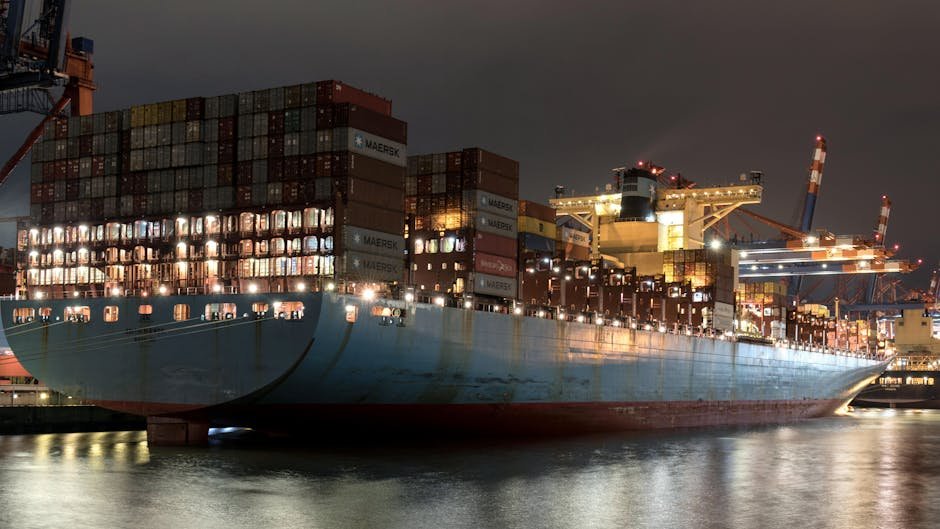Embracing Digitalization in Logistics: The Gateway to Efficiency
In a world where speed and accuracy are paramount, digitalization in logistics stands as the beacon of efficiency. Through the integration of cutting-edge technology, businesses can streamline operations, optimize supply chains, and revolutionize decision-making processes. Join us on a journey through the evolution of logistics in the digital age, where automation, big data analytics, and cybersecurity measures work hand in hand to shape the future of the industry.
The Evolution of Logistics in the Digital Age
The digital age has ushered in a new era for logistics, where traditional methods are being rapidly replaced by innovative solutions. From manual tracking and paperwork to advanced software systems and real-time monitoring, the transformation has been nothing short of revolutionary. With the rise of e-commerce and global trade, the need for efficient and agile logistics processes has never been greater. Companies are now leveraging sophisticated technologies like artificial intelligence and IoT devices to optimize routes, reduce delays, and ensure the timely delivery of goods.
Moreover, the integration of digital platforms has enabled seamless communication between all stakeholders in the supply chain. From manufacturers to distributors, retailers, and end consumers, information now flows swiftly and accurately, improving visibility and transparency at every stage of the journey. This shift towards digitalization not only enhances operational efficiency but also opens up avenues for data-driven decision-making, enabling businesses to adapt proactively to market changes and consumer demands.
With the convergence of logistics and technology, complexities have given way to simplification, empowering businesses to navigate the intricacies of a global marketplace with ease. The evolution continues, shaping a landscape where speed, reliability, and sustainability define the new norms of success in the digital era of logistics.
Optimizing Supply Chains through Technological Integration
Efficiency lies at the heart of supply chain optimization, and digitalization serves as the key to unlocking its full potential. By harnessing data analytics, businesses can gain valuable insights into consumer behavior, market trends, and operational performance. These insights, in turn, enable proactive decision-making, accurate demand forecasting, and dynamic inventory management.
Automation plays a pivotal role in streamlining supply chain processes, reducing manual errors, and enhancing overall productivity. Robotics and AI-driven solutions are revolutionizing warehouse operations, increasing storage capacity, and expediting order fulfillment. The synergy between technology and logistics not only accelerates the pace of operations but also minimizes costs and improves customer satisfaction.
Real-time tracking and monitoring systems further enhance the visibility of goods in transit, enabling precise delivery schedules and minimizing delays. By digitizing supply chain networks, businesses can adapt to changing market dynamics, mitigate risks, and ensure a seamless flow of products from manufacturing plants to end consumers. The era of optimized and agile supply chains has dawned, reshaping the competitive landscape across industries.
Big Data Analytics: Revolutionizing Decision-Making in Transportation
In the realm of transportation, big data analytics reigns supreme, offering a treasure trove of actionable insights for logistics stakeholders. By aggregating and analyzing vast amounts of data, businesses can uncover patterns, trends, and performance metrics that drive informed decision-making. From route optimization to fuel efficiency, predictive maintenance, and risk management, big data plays a pivotal role in enhancing operational efficiency and cost-effectiveness.
With real-time data streams and predictive analytics tools, transportation companies can proactively address maintenance issues, mitigate disruptions, and improve fleet management practices. The ability to predict demand fluctuations, optimize delivery routes, and allocate resources efficiently empowers businesses to stay ahead in a fast-paced and demanding industry landscape. Harnessing the power of big data, logistics providers can deliver exceptional service levels, reduce carbon footprints, and drive sustainable practices across their operations.
The era of data-driven transportation is marked by innovation, agility, and a relentless pursuit of operational excellence. By embracing big data analytics, businesses can not only optimize their internal processes but also forge stronger partnerships, enhance customer experiences, and stay resilient in the face of evolving market dynamics. The future of transportation belongs to those who dare to leverage the power of data in their quest for efficiency and sustainability.
Automation and Robotics: Streamlining Warehouse Operations
Automation and robotics have emerged as game-changers in the realm of warehouse operations, redefining the efficiency and scalability of logistics processes. With the implementation of automated systems for inventory management, order picking, and packaging, businesses can significantly reduce labor costs, minimize errors, and accelerate order fulfillment timelines.
Robots equipped with AI capabilities can navigate warehouse environments with precision, optimizing storage space, and ensuring the accurate sorting and distribution of goods. Automated guided vehicles (AGVs) streamline material handling tasks, while robotic arms enhance the speed and accuracy of packing operations. The seamless integration of automation technologies transforms warehouses into hubs of productivity and efficiency, enhancing throughput and minimizing operational bottlenecks.
Furthermore, the rise of collaborative robots, or cobots, introduces a new paradigm of human-robot collaboration in warehouse settings. These agile and adaptable robots work alongside human operators, handling repetitive tasks and heavy lifting, thereby enhancing workplace safety and ergonomic standards. By leveraging automation and robotics, businesses can not only optimize their warehouse operations but also create a dynamic and agile supply chain infrastructure that responds effectively to changing market demands.
Cybersecurity Measures: Safeguarding the Digital Supply Chain
With the increasing digitization of supply chain operations, cybersecurity emerges as a critical imperative for safeguarding sensitive data, ensuring operational continuity, and protecting against cyber threats. The interconnected nature of digital supply chains exposes businesses to potential vulnerabilities, ranging from data breaches to ransomware attacks, necessitating robust cybersecurity measures to mitigate risks and maintain business resilience.
By implementing encryption protocols, access controls, and threat detection mechanisms, logistics companies can fortify their digital defenses and safeguard confidential information from unauthorized access. Regular security audits, employee training programs, and incident response protocols help build a culture of cybersecurity awareness and preparedness within organizations, ensuring a proactive stance against emerging cyber risks.
Moreover, the adoption of blockchain technology in supply chain management offers a decentralized and secure platform for transactions, document verification, and transparent data sharing. By leveraging blockchain's immutable ledger and cryptographic principles, businesses can enhance the integrity of their supply chain data, authenticate product origins, and establish trust among trading partners and consumers. Cybersecurity measures not only protect digital supply chains from external threats but also foster a culture of trust, transparency, and reliability in the digital ecosystem.
Embracing the Digital Future
As we navigate the intricate web of supply chains and transportation networks, embracing digitalization in logistics becomes not just a choice but a necessity. The seamless flow of information, the ability to predict and adapt to changes swiftly, and the safeguarding of valuable data through cybersecurity measures are the cornerstones of a resilient and efficient logistics ecosystem. The gateway to efficiency is wide open, waiting for businesses to harness the power of digital transformation and propel themselves into a future where success is driven by innovation and adaptability.

